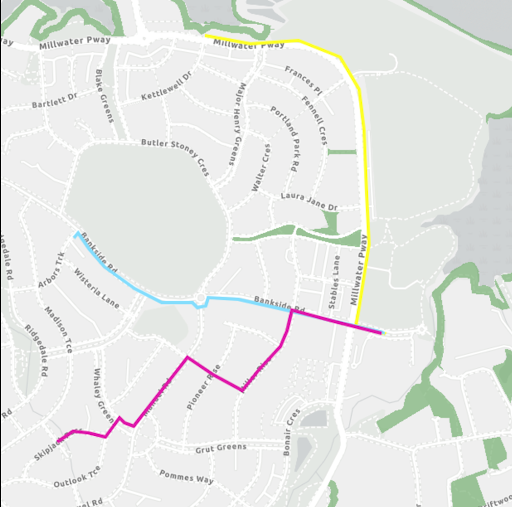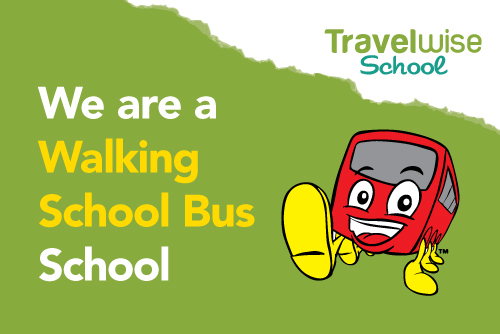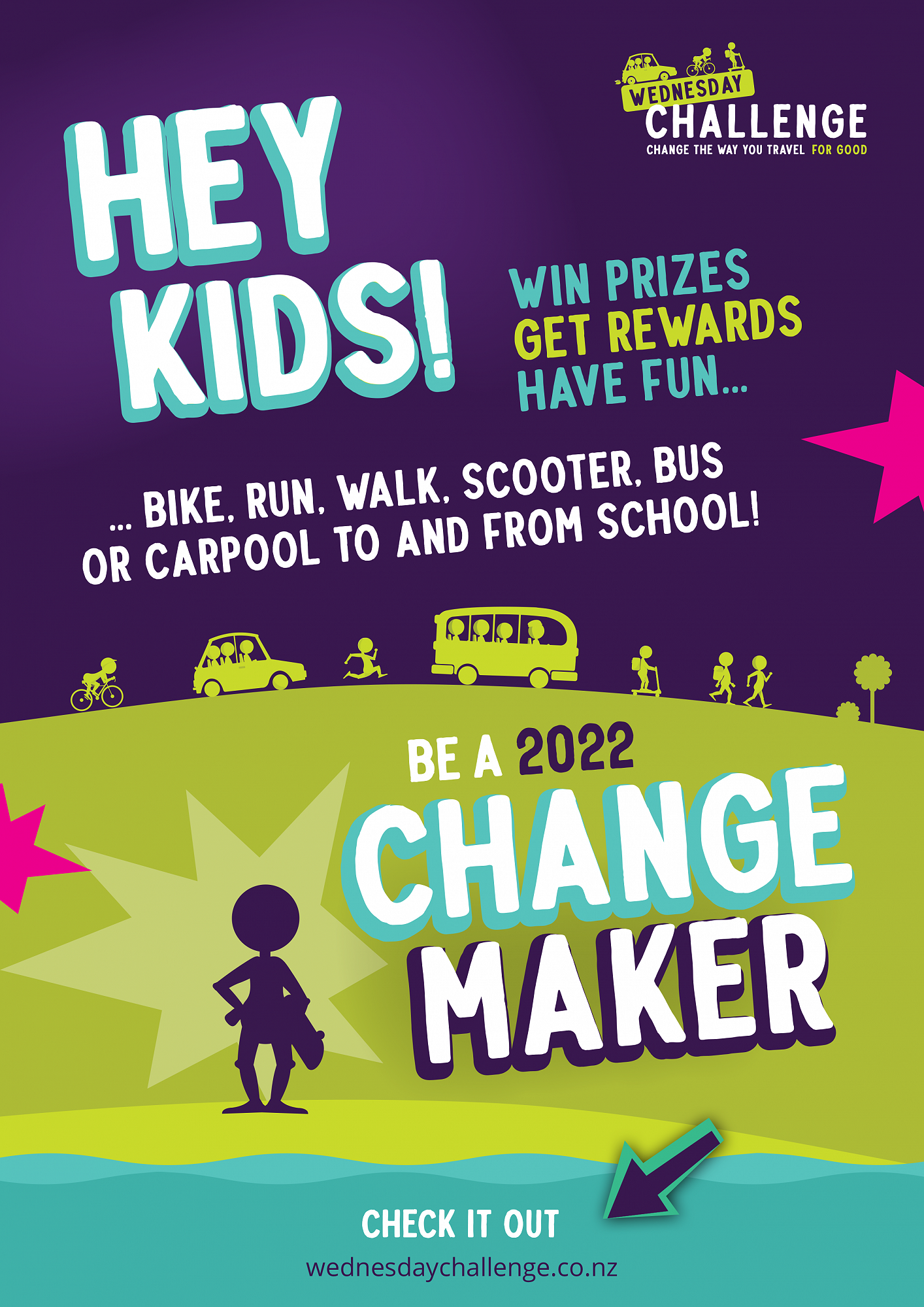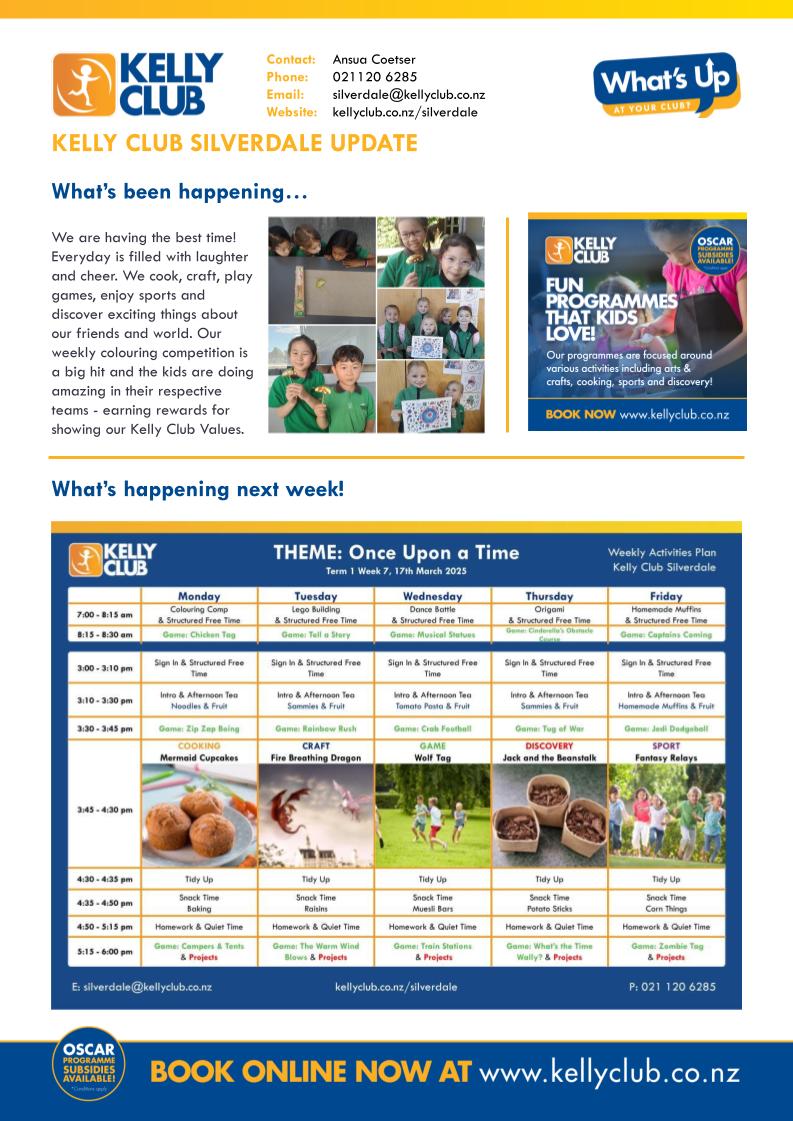Safely Crossing the Road
I have had a number of reports that our children are crossing the road in an unsafe manner especially at the lights on Bankside. Children are hearing the sound to cross but aren’t looking to make sure it’s safe to do so. Unfortunately some drivers are running the yellow/red light. Can you please go over with your children how to safely cross the road.
Traffic light signal crossing
A signalised crossing is where there is a pedestrian light (red/green man) at a set of traffic lights.
- Press the button at the signalised crossing, the red man will light up on the pole across the road. This means do not cross.
- Walk when the green man is lit. Double check for left and right turning traffic before crossing.
- Flashing red man – continue to cross, but do not step onto crossing. This means vehicles will start moving again soon.
- Do not step onto the road when the red man is lit.
School Donations
Our school donation is $200 per child or $50 a term. This money was used to pay for a large number of additional curriculum resources, subsidise a number of school wide activities such as art, dance and drama resources, sporting functions, developmental material and related photocopying and other essential resources. No child was excluded from using these resources but it does seem that quite a number of families relied on the goodwill of others to support their child.
Each term the School Board puts all the names of those donations that have been made into a draw to give one child the chance to have their fees paid for the following term. The families that have received these in the past have been very grateful. We understand that a donation is voluntary and that it can be at times very difficult to manage. Mrs Reid in the office, is very happy to discuss possible arrangements for meeting this cost for your child. Each small contribution adds up across the course of time and helps to enhance the substance of this school.
A huge thank you to all those families who paid their donation this year.
Parents of Silverdale Facebook Page
There is a Parents of Silverdale Facebook Page. This page is not run by the school, it is a platform for parents to connect. Please don’t rely on this page for up to date information from the school. All information from the school will be communicated to you via the app, newsletter, website or email.
Silverdale School’s Learner Asset/Rawa Ākonga Launch
Our learner assets are:
Self Manager / He kaiwhakahaere i a koe anō
Communicator / He Kaiwhakawhiti Kōrero
Collaborator / He Hoa Mahi Tahi
Innovator / He Tangata auaha
Self Manager / He kaiwhakahaere i a koe anō in the Spotlight
How does this look at school?
One of the important skills necessary to be a Self Manager is for students to be able to regulate their emotions. We all experience strong emotions from time to time. Children can easily become overwhelmed with emotion and learning strategies to deal with feelings is an important part of child development. At Silverdale School we support children in this by teaching Emotional Literacy and Mindfulness. Learning the language to communicate how they are feeling with others is a key step in sharing their own emotions and understanding the emotions of others. The Mindfulness element teaches children a range of tools that they can use to calm themselves down and control their emotions. Alongside this we also use The Zones of Regulation to further help children identify how they are feeling, understand their emotions and develop strategies to regulate themselves.
The other part of being a Self Manager involves the key skills necessary to goal set and strive for excellence. Children are encouraged to take responsibility for their choices, learn from mistakes and manage their time. In the Junior school examples of this would be children choosing a play area during Wa Rapu time to engage with, starting to take risks by trying new learning activities and understanding that mistakes are a part of learning. Further up the school students will be using time management to complete tasks, set their own learning goals and use grit and determination to achieve them.
How could this look at home?
Not only are the learning assets transferable across subjects, they are highly transferable to situations beyond school. Helping to develop your child’s self management skills at home will have major benefits for both you and your child! A Self Manager at home will be able to get themselves organised for upcoming events, be responsible for their set jobs around the house, share how they are feeling and have strategies to calm themselves down when necessary. Below are some ideas for supporting your child to become a Self Manager
- Create a visual chart with your child to help them get ready for school themselves
- Help your child to set and work towards goals, they could be for sports clubs, musical instruments, art skills etc.
- Set your child up with some areas of responsibility in the home, start with simple jobs like feeding a pet
- It is important to help children self regulate. Modelling is key in this. You might say something like “I am going to take a break from this and go for a walk because I am feeling frustrated” and afterwards tell your child how using those tools helped you get back into a calmer state
- Identify your own feelings using emotional literacy in front of your child (e.g, I’m feeling frustrated”)
- Empathise with your child and validate what they are feeling.
- Praise your child when they use a strategy to calm themselves down


























